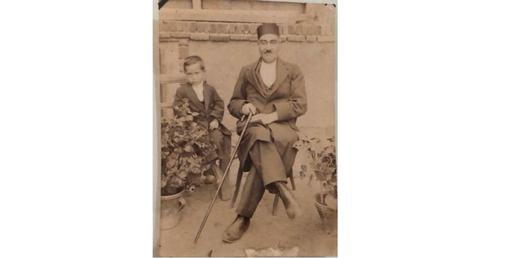Dissident journalist Ruhollah Zam has been executed in Iran after he was kidnapped and forcibly returned to the country last year.
The father-of-two was the founder and head of Amad News, an independent website and Telegram channel that played an important role during the 2017 protests.
He was executed by hanging on the morning of December 12, 2020 having been convicted of a litany of offences that the Revolutionary Court in Tehran said amounted to “corruption on earth”.
Zam had been living in fear for his life as an asylum seeker in Paris for several years before his arrest in Baghdad, Iraq last October. He had travelled to Iraq in the belief he was going to meet Ayatollah Sistani, but had been lured into a trap. The IRGC then oversaw his transfer him back to Iran.
After months of detention Zam’s trial got under way in February and in July, he was sentenced to death after an unfair trial that relied on false confessions. His family immediately appealed the verdict but it was overturned by the Supreme Court in a ruling only belatedly published in early December.
Speaking to IranWire before the final verdict was released, Zam’s lawyer in Paris, Hassan Fereshtyan, said he had told his client in no uncertain terms not to go to Iraq in October 2019 – but Zam had already bought his visa. Describing him as "courageous, ambitious, at times naïve, and full of that fiery youthfulness", he said Zam had considered abandoning journalism to set up a business in exile but in the end, resolved not to abandon Amad News.
News of Zam’s execution was received bitterly by Iranians and human rights defenders on social media this morning. Human rights defender Masih Alinejad wrote that she was “deeply shocked and saddened” by his death, pointing out that his kidnapping by the IRGC “could happen to all of us”.
The Iran Human Rights Documentation Center and others called on the international community to condemn the killing. The French government had previously described his death sentence as "a serious blow to freedom of expression and press freedom in Iran."
Father of Executed Journalist: They Deceived My Son
Mohammad Ali Zam, Ruhollah Zam’s father, said his son had been tricked into “confessing” to the 13 charges against him with the false promise of an upcoming “prisoner exchange”.
In a post on his Instagram page, Zam’s father described his last visit to his son in prison. He said that during their exchange, the officer overseeing the visit asked him not to talk with Ruhollah about the as-yet unpublished ruling by the appeals court to uphold his death sentence. Furthermore, he said, he was told that “if” the sentence had been upheld it would not be carried out immediately, but would go through a formal process first that “we will tell you about”.
Ruhollah informed his father that his taped “confession”, which had been broadcast a few days previously on Iranian state television, had been recorded a month earlier by the agents of the judiciary.
“Although the case was over and the verdict had been issued,” he told his father, “the Revolutionary Guards’ Intelligence Unit handed me to the judiciary about two months ago and I underwent long interrogation sessions, first by the judiciary’s security division and then by the Intelligence Ministry.”
Zam’s father also wrote that interrogators had promised Ruhollah he would be released in a prisoner exchange, and his “confessions” would be heard only by judiciary chief Ebrahim Raeesi.
Ruhollah Zam had been made to confess, amongst other things, to receiving cash payments from foreign countries, espionage and “revealing the whereabouts” of General Ghasem Soleimani, the commander of the IRGC’s Quds Force who was killed by a US drone strike in Iraq last year in Iraq.
In June this year Zam was sentenced to death by Branch 15 of the Revolutionary Court, presided over by Judge Abolghasem Salavati. The 13 charges against him, which it was decided amounted to “corruption on earth”, included “working with French, Israeli, and U.S. intelligence agencies”, “spreading false news and propaganda”, “acting against national security”, “insulting holy Islamic values, law enforcement agents, Supreme Leader Ayatollah Ali Khamenei, and the late Ayatollah Khomeini”, “espionage”, “spreading corruption”, “collecting classified information”, “making income from illegitimate sources”, “encouraging people to break national order and security”, “collusion against national security” and “creating and joining a hostile group.”
Related coverage:
Lawyer Remembers Last Meeting With Dissident Journalist
Ruhollah Zam's Death Sentence Upheld
Reporters Without Borders Calls on UN to Save Iranian Journalist
Journalist Ruhollah Zam Sentenced to Death in Iran
visit the accountability section
In this section of Iran Wire, you can contact the officials and launch your campaign for various problems

























comments